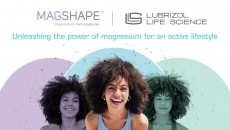Harvard professor slams supplements
dietary supplements will not provide the nutritional boost a poor
diet requires.
Only a change in diet and lifestyle will do that and fundamentally unhealthy people seeking dietary remedial action through supplementation are wasting their time, said Dr Eric Rimm, associate professor in the Departments of Epidemiology and Nutrition at Harvard.
Indeed dietary supplements used in this way may provide little more than "expensive urine", he said.
"A supplement is called a supplement because it's supposed to be supplementing a healthy lifestyle," he said.
Rimm's advice for consumers is: "Get yourself off the average diet and move to a healthier diet, and exercise three times a week."
The Washington DC-based Natural Products Association (NPA) said dietary supplementation had an important role to play in lifestyles that often found it difficult to permit healthy eating. "
As research has demonstrated time and again, Americans simply don't get enough essential nutrients through their diets," Tracy Taylor, NPA senior vice president of public affairs and strategic initiatives, told NutraIngredients-USA.com.
"Instead of being picked-on, supplements should be recognized as a relatively inexpensive and efficient way to bridge the gap between meeting basic nutrient needs and an inadequate diet.
Fortunately, many doctors are now recommending that their patients - whether adults or children - take a multivitamin every day to ensure that happens."
It is estimated the US dietary supplements market is worth $22.5bn.
Efficacy concerns He highlighted vitamin C and folic acid as two nutrients that were readily abundant in the diet, even for the less healthy members of society, and where supplementation was rarely required.
The US is one of the few countries in the world where folate fortification is mandatory.
"We are already getting more folate just from having hamburger buns and bread with our sandwiches," Rimm said.
He also noted that while there was little evidence to suggest taking high doses of vitamin C was dangerous, there was equally scant data backing its purported health benefits.
Despite Rimm's reservations, Dr Michael Holick, director of the Vitamin D, Skin and Bone Research Laboratory at Boston University School of Medicine noted that 40 per cent of Americans are vitamin D deficient.
He recommended adults and children of both genders taking 1000mg of vitamin D per day.
Even Rimm recognized the value of taking an antioxidant like vitamin E in battling conditions like heart disease, although its effects could be nullified by the use of statin drugs.
But nutrigenomic technologies that identified antioxidant deficiencies could be useful.
"For those people who are susceptible to oxidation, taking vitamin E is beneficial for lowering the risk of heart disease," Rimm said.
Rimm recommended oily fish as a source of omega-3s rather than supplementation despite the overwhelming evidence Americans don't reach anywhere close to the recommended weekly portions of oily fish.
"Trends toward longer working hours, family schedules that are jam-packed with activities and a lagging economy are indicators that getting enough vitamins and minerals through nutrient-dense fresh fruits and vegetables and other foods will continue to be a challenge," Taylor added.











